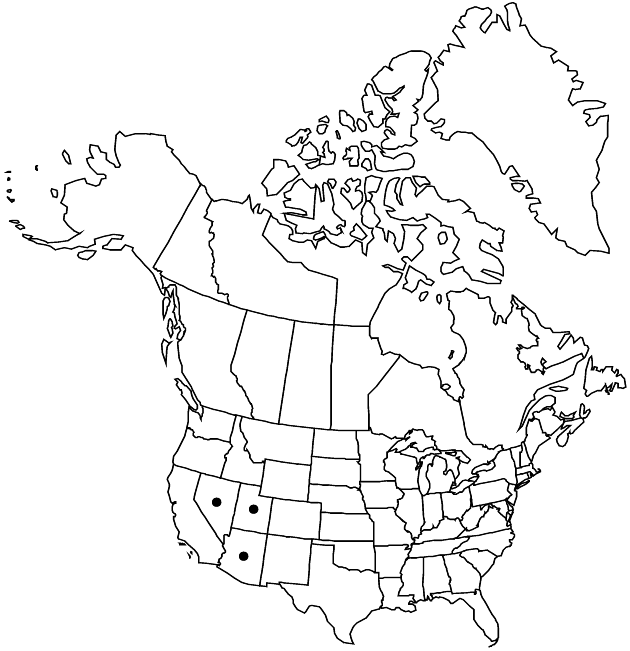Ericameria watsonii
Phytologia 68: 152. 1990.
Plants 5–40 cm. Stems erect to spreading (close to the ground), green when young, becoming pale reddish-brown, highly branched, coarsely long-stipitate-glandular. Leaves (crowded) ascending; blades elliptic to oblanceolate, 10–25 × 3–8 mm, midnerves evident (1–2 fainter, collateral nerves often present), (margins undulate) apices acute, apiculate, faces long-stipitate-glandular; fascicles usually absent, (sometimes of 1–3 reduced leaves). Heads usually in cymiform arrays. Peduncles 1–12 mm (bracts 3–20, crowded, leafy, grading into phyllaries). Involucres broadly obconic, 6–8 × 4–7 mm. Phyllaries 25–30 in 3–4 series, green to tan, ovate to oblong, 4–8 × 0.7–1.5 mm, unequal, outer herbaceous or with herbaceous appendages, inner mostly chartaceous, midnerves usually evident, (margins entire, outer often herbaceous, inner scarious) apices acute to acuminate or attenuate, abaxial faces mostly stipitate-glandular. Ray-florets 4–8; laminae elliptic, 6–9 × 1–2 mm. Disc-florets 12–22; corollas 5.5–6.5 mm. Cypselae tan to brown, narrowly turbinate, 3–4.5 mm (usually 5-ribbed), moderately sericeous; pappi tan, 4–5.5 mm. 2n = 18.
Phenology: Flowering late summer–fall.
Habitat: Rock outcrops, desert scrub, pinyon-juniper, ponderosa pine communities
Elevation: 1300–3400 m
Distribution

Ariz., Nev., Utah.
Discussion
Selected References
None.
Lower Taxa
"fine" is not a number.